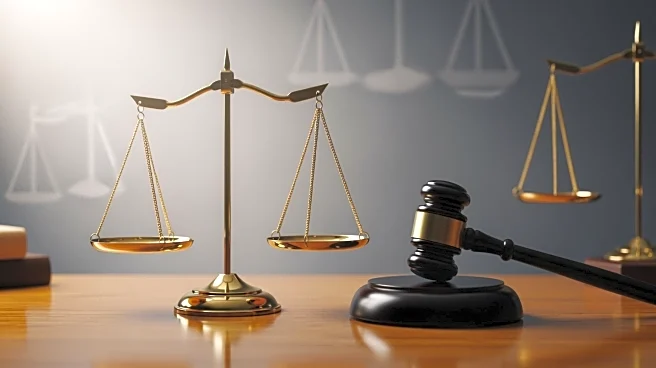What's Happening?
The Department of Justice is defending the appointment of Alina Habba as the U.S. attorney for the District of New Jersey, a decision that has been challenged as unlawful by a lower court. During oral arguments in the Third Circuit, DOJ attorney Henry
Whitaker argued that the appointment was consistent with longstanding practices, despite skepticism from the judges. Habba, previously a personal attorney for President Trump, was appointed after being voted out by district judges. The Trump administration maneuvered to reappoint her by withdrawing her nomination, firing the approved replacement, and appointing her as the first assistant U.S. attorney, which led to her automatic reappointment. The legality of this process is under scrutiny, with concerns about the appointment's impact on New Jersey's federal court operations.
Why It's Important?
The controversy surrounding Alina Habba's appointment highlights significant concerns about the integrity of federal judicial appointments and the potential for political influence in legal processes. If the Third Circuit overturns the lower court's ruling, it could set a precedent allowing the Attorney General to appoint U.S. attorneys without proper procedures, potentially undermining the judicial system's independence. This case also affects ongoing criminal cases in New Jersey, as defendants question the legitimacy of the prosecution under Habba's leadership. The outcome could influence future appointments and the balance of political power within the judiciary.
What's Next?
The Third Circuit has yet to issue a ruling on the case, leaving the future of Habba's appointment uncertain. If the court upholds the lower court's decision, it could lead to a reevaluation of the appointment process for U.S. attorneys and potentially impact other similar cases across the country. Stakeholders, including criminal defense lawyers and political figures, are closely monitoring the situation, as the decision could have broader implications for judicial appointments and political influence in legal matters.
Beyond the Headlines
The case raises ethical questions about the politicization of judicial appointments and the potential for creating 'shadow governments' of delegated U.S. attorneys. It also highlights the challenges of maintaining judicial independence in a politically charged environment. The controversy may prompt discussions on reforming the appointment process to ensure transparency and adherence to legal standards.
















